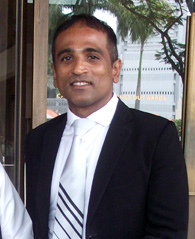Wednesday, 6 March 2013, was the day Tan Eng Hong’s challenge to the constitutionality of Section 377A was heard in closed court. Section 377A of the Penal Code is the law that criminalises “gross indecency” between two men.
This follows quite soon after the court date for another challenge to the same law, mounted by Gary Lim and Kenneth Chee and reported in First of two 377A challenges heard in closed court.

In the Tan Eng Hong case, there are pages and pages of arguments, but my sense, on reading them, is that the issue is being distilled to a few crucial points. And these crucial points are not specific to the “gay issue”, but will prove important to any future constitutional challenge that is based on Article 12 (the equality provision) of our constitution.
The first crucial point is the level of scrutiny. This is a somewhat technical matter, but basically, the Attorney-General’s Chambers, in defending the constitutionality of Section 377A, urges the court to accord a “strong presumption of constitutionality” to legislative acts. That is to say, statutes passed by parliament should be presumed to be constitutional unless there is absolutely nothing that can support it. The AG argues that so long as a single shred of justification can be found to provide reason for a piece legislation, even if a discriminatory one, and even if all the other reasons for it have been found nonsensical, the court must find the legislation constitutional.
Tan Eng Hong argues the court should apply strict scrutiny. This is because, he submits, Section 377A is a law that on its face is discriminatory as the “statute purports to classify an individual only on the basis of an immutable attribute” — and his submission also goes to great lengths to demonstrate that homosexual orientation is an immutable attribute. A strict scrutiny test in effect reverses the burden of proof. It is for the AG to demonstrate that it does not violate the equality provision. Tan Eng Hong as plaintiff then lays out several ways in which Section 377A discriminates arbitrarily, thus inviting the AG to disprove each and everyone of these — should strict scrutiny be the standard.
It will be interesting to see how the court decides this question of the level of scrutiny, because it will set a precedent when it comes to any other challenge on equality grounds.
The argument over the level of scrutiny is necessarily developed with very fine and technical excursions. One interesting line was taken by the AG in its submission (para 33) when it said, in effect, that Singapore courts have never accepted that it has a role in determining “legitimate state interest”. This half-hidden line is far more important than it looks, because strict scrutiny cannot proceed if courts remove themselves from any review of legitimate state interest — precisely what the AG is trying to do. Why can’t it proceed? Because, if a court has to decide whether discrimination is justifiable or not, the court must also decide: justifiable for what purpose? Some purposes are legitimate; other purported purposes (e.g. imprisoning people because the majority think they look ugly) are not. If courts are ousted from being able to review whether the asserted state interest is legitimate, then courts can never arrive at any determination whether discrimination is justifiable or unjustifiable/unconstitutional.

Fortunately, Tan Eng Hong’s lawyer M Ravi strenuously argued that in Commonwealth jurisdictions, courts have not relinquished such a role, urging the Singapore court likewise not to.
Another major area surfaced by this case is over the question of laws purporting to further morality. The AG argues that legislatures have always passed laws in the interest of morality. When the Singapore Parliament debated Section 377A within this frame, showing that the intent of keeping Section 377A was related to morals, it was a perfectly legitimate exercise of state power.
Tan Eng Hong had two different responses to this. In his submission, he makes a case for distinguishing between incontrovertible morality and “morality” that is not incontrovertible. Rape, slashing, poisoning and murder are examples of incontrovertible morality, but erotic gay relationships are not in the same class; it is “a particular group’s vision of morality,” he says in supplementary submission. Large numbers of Singaporeans do not consider this a moral question. Tan Eng Hong also demonstrates how even among Christian churches, divergent views prevail. Homosexuality is not a question of incontrovertible morality; that being the case, Section 377A is arbitrarily supportive of merely one view. Arbitrariness is a major reason to strike down laws as unconstitutional.
Interestingly, in his oral arguments, M Ravi was reported to have taken a new angle, and perhaps a very important one. He pointed out to the judge that the Singapore Constitution allows no morality exception to the equality provision. This is unlike Article 14 — the part that guarantees freedom of speech and association — which contains a subsection 14(2) saying that Parliament may make laws that impose restrictions in the interest of morality. This exception, he argued, only applies to the guarantee of speech and association freedom. Article 12 — the equality provision — by contrast contains no such exemption; it is absolute. This means that our constitution does not permit Parliament to pass discriminatory laws purportedly in the interest of morality.
—
A little bird has just told me that Justice Quentin Loh is close to issuing his decision on the first challenge — that by Gary Lim and Kenneth Chee — which was heard in court in February. His decision may be released within this month (March 2013).
As most observers believe, whichever way his decision goes, it will likely go to appeal.
In that event, will he hold back on deciding Tan Eng Hong vs Attorney-General? It would seem logical, so that in his eventual Tan Eng Hong his decision, he can be guided by the Appeal Court’s reasoning.
Alex Au has been a gay activist and social commentator for over 15 years and is the co-founder of People Like Us, Singapore. Alex is the author of the well-known Yawning Bread website.











 打印版本
打印版本


















